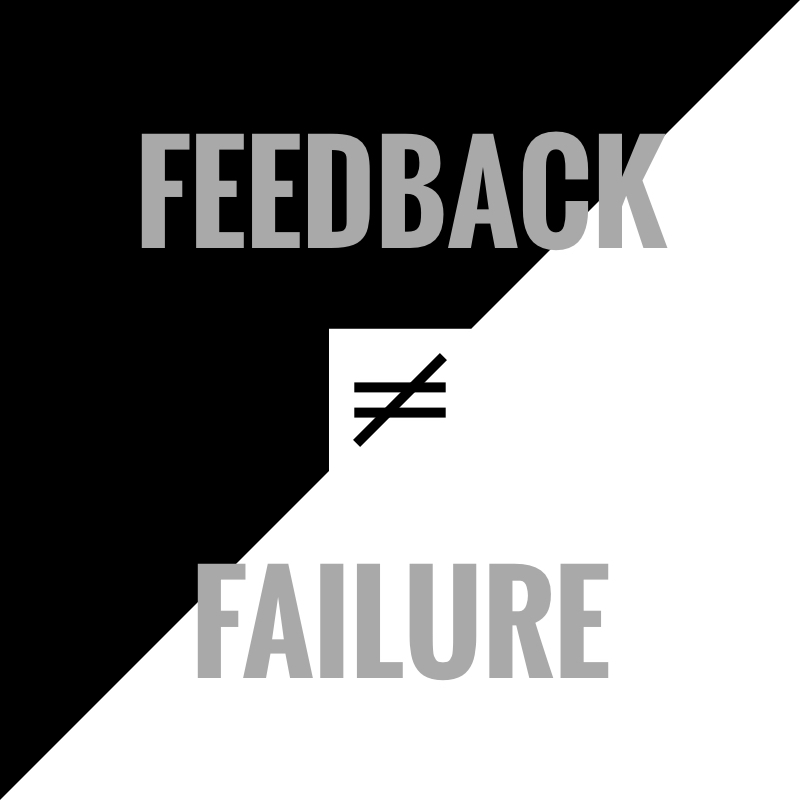Overcoming the Fear of Feedback
By Sarah Babbage - Writer, editor, and Media Communications student at Full Sail University.
Everyone makes mistakes.
No one is perfect.
If at first you don’t succeed, try again.
We grow up hearing these sayings from parents, teachers, mentors, and peers, and yet “failure” is still one of the most common fears to plague our lives. Some of us let that fear control us; allowing it to dictate our decisions and prevent us from taking advantage of opportunities around us.
Because of failure, many people fear an even more harmless part of life: feedback.
We fear failure because we think we won’t be able to recover from it, and we fear feedback because we think the feedback we receive will say that we have failed. This fear gives feedback a bad reputation and makes many people dread the word itself. However, it’s important to point out that you can change your relationship with feedback-- and that there are plenty of mindset tweaks that can help you along the way.
To start, you have to acknowledge that feedback is always going to be a part of your life. Regardless of what you choose to do, there are always going to be assignments or projects you work on that will receive some form of feedback. This feedback could be from your professor, your boss, your friend, or even a complete stranger, and you might receive feedback from numerous people on the same project. It is up to you to pay attention to that feedback and to understand why it’s being given so that you can accurately assess what you should be taking away from it.
For me, this means accepting that the work I am doing now is not just susceptible to feedback from one person one time. As a writer, the work I publish online can hypothetically exist forever, meaning that I can be receiving feedback from those that read my work for years to come. While this is a daunting concept, the potential for this as a learning tool is huge.
I can learn things about my past work long after I move on from it. This means that my writing can feel like a living organism, continuing on beyond its publishing date and becoming a vital part of my growth, both personally and professionally.
Additionally, you have to learn that feedback exists to lift you up and push you forward, not to tear you down and push you back. Feedback is not the same as a numerical grade; there is nothing about it that should tell you that you “failed” or “passed”. Instead, feedback is meant to be constructive and provide you with a set of things to work on. As people, we are changing and growing all the time, and the purpose of feedback is to guide you to where you should be going next.
As a child, I let feedback hold me back often because I failed to understand its purpose. I dreaded handing in essays and homework assignments, not because I thought I did these assignments wrong, but instead because I feared being criticized in any way. I often took feedback as an attack and this hindered my self-confidence for years. As I began college and learned a lot more about what constructive criticism really is, I realized that I should feel empowered by the idea of someone looking over my work and that I should always try to be better than the previous version of myself.
Finally, the most vital key to effectively changing your mindset around feedback is to understand and admit that you were never expecting to be perfect in the first place. No project is ever really finished, and no skill is ever really mastered. You are human. You have flaws. You have things to work on. There is nothing at all wrong with this. In fact, this should be celebrated. When you turn a project in or show your work to someone, you should acknowledge that there is nothing wrong having made something that isn’t flawless.
I don’t try to be perfect. I used to, but that never got me anywhere.
The work I do now is better than anything that came before it because I’m trying to make it better; I’m not trying to make it perfect.
My writing has flaws, my assignments do not always receive an A+, and I have a lot to learn about a lot of different things. That’s a good thing. It gives me somewhere to go next and something to work on and, through being more receptive and appreciative of others’ feedback, multiple someones to share it with.
The fear of failure never completely goes away, but security in oneself that comes from embracing feedback and understanding its purpose serves as a massive comfort.
Feedback does not equate failure.

